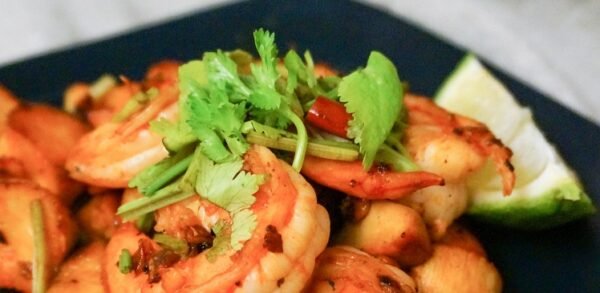Is Shrimp Halal?As a Muslim should you consume shrimps?
Based on the Islamic guidelines and beliefs set to safeguard the things Muslims consume. As Muslims, we need to watch what we eat and make sure they are not foods that are prohibited by Islamic law.There are several types of foods and animals that we consume and we just want to be sure if they are Halal i.e, permissible.
Halal food is a term used to describe food and drinks that are permissible for consumption according to Islamic law. The word “halal” means lawful or permitted, and it is the opposite of “haram,” which means unlawful or prohibited. Muslims around the world follow strict dietary laws that dictate what they can and cannot eat, and halal food plays a significant role in their daily lives.
Halal Vitamins brands
This is an independent website by a Female scholar.If you benefit from our articles, Help our Projects by buying our Worksheets (Link1) or (Link2) or removing ads. Bookmark our website so that you can visit it daily for(Digital Tasbih) or (Salah Tracker).
Halal food is not only about what is consumed but also how it is prepared, as it must be cooked and handled in accordance with Islamic principles.
The recent debate has been on shrimp; over time, some Muslims who love how shrimps are being dressed on dishes are worried to know if such a creature or meat is halal.
In this article, we will be explaining to you, everything you need to know about the consumption of shrimp by Muslims but before we go into that, allow us to familiarize you with the whole aspect that we will cover
- Is there any nutrition in shrimps?
- Is Shrimp Halal?
- Is Shrimp Haram?
- Can Muslims Eat Shrimp?
- Can we eat shrimp : Different Islamic school opinions
- FAQ
- Conclusion
Are you ready to know what you didn’t know? Now let’s do this!
Is there any nutrition in shrimps?
Many individuals who consume shrimp agree to eat it because of its nutritional value.
Shrimps are an excellent source of protein and they are rich in antioxidants that are beneficial to our health. These compounds can shield the cells from harm. According to studies, astaxanthin is an antioxidant that decreases UV damage and wrinkles.
Shrimp is low in calories and carbs and high in nutrients. 100 grams of cooked shrimp typically contains:
- 99 calories
- 0.3 grams of fat
- 0.2 grams of carbs
- 189 mg of cholesterol
- 111 milligrams of sodium
- 24 grams of protein.
Is Shrimp Halal?
There are differences of opinion among competent and reliable Ulama regarding the permissibility of eating prawns and shrimps. Some Ulama hold the view that eating shrimps and prawns is permissible while others say they are not permissible.
The differences are due to the categorization of prawns and shrimps. Those who hold the view of the permissibility of eating prawns and shrimps believe that they are fish. Others believe that they are not fish. In view of the differences of opinion; there is a leeway for eating prawns and shrimps.
Is Shrimp Haram?
No, shrimp is not Haram. It is considered makruh by Hanafi ulema and some Ulema allow eating it.
Can Muslims Eat Shrimp?
Some scholars allow eating shrimp and some consider it makruh or disliked.
Can we eat shrimp -Different Islamic school opinions:
In the Hanafi school of thought, eating Shrimp is considered makruh. But we cannot deny the fact that other Islamic schools of thought and some well-known Islamic scholars consider it okay to consume shrimp as long as it is cooked humanely.
The Egyptian Fatwa House stated that eating shrimp is permissible (halal) according to all Islamic jurisprudential schools, including the Hanafi school. There is a consensus among scholars on its permissibility because linguistically and in terms of the science of language, it is considered a type of fish. All types and varieties of fish are unanimously considered halal (permissible).
The Fatwa House cited the Quranic verse: “Lawful to you is the game of the sea and its food as provision for you and for the travelers” (Surah Al-Ma’idah, 5:96), as well as the saying of the Prophet Muhammad (peace be upon him) regarding the sea: “Its water is pure, and its dead are lawful.” This hadith is narrated in various hadith collections.
They explained that in the Arabic language, the word for “shrimp” is “الإِرْبِيَانُ” (al-irbiyan) with the hamzah (ء) pronounced as a glottal stop, and it is considered a type of fish. The consensus among scholars, linguists, and experts in various fields is that it is a type of fish, and all types of fish and their varieties are unanimously considered halal.
The term “الجمبري” (shrimp) in the Arabic language is used to describe this seafood, and it is widely recognized as a type of fish.
Maliki school of thought – According to the Maliki school, it is OK as long as you avoid eating the shrimp’s head, which is regarded as a component of the body.
The Hanbali school of thought – Hambalis also holds that shrimp can only be consumed while still having its whole complete components are intact (its head and tail are attached).
The Shia, says shrimps can only be consumed cooked or while still alive.
Frequently Asked Question
Can the preparation of shrimp make it haram?
Probably yes, if cooked with some ingredients that are highly prohibited by Islamic laws, ingredients that are unclean (Najis), this include alcohol, or being cooked with prohibited animals like pork meat, or other animals of prey.
Can long-dead shrimp be eaten?
Islam forbids the consumption of rotten food, any meal that will cause harm to the health is highly prohibited by Islamic law, so for this reason you can’t eat a rotten or long-dead shrimp.
Conclusion
Some halal seafood makes a delicious meal that offers great health benefits for the wellness of our health. While it is not haram to eat shrimps, on the side of precaution you can choose alternate dishes like fish or halal turkey .
Discover more from Islam Hashtag
Subscribe to get the latest posts sent to your email.





